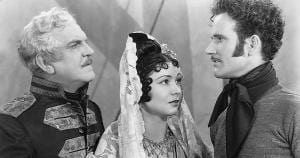 Perhaps we can find someone to do some evil for us that good may abound or we can cheat, lie, or cut corners and once we win do some good with our ill gotten gains.
Perhaps we can find someone to do some evil for us that good may abound or we can cheat, lie, or cut corners and once we win do some good with our ill gotten gains.
Can a John D. Rockefeller pay off God by doing charitable deeds with his brutal gains? If Lenin builds enough schools, will we forget the millions dead in the Red Terror? What if the pirate builds a enough chapels, then is his piracy a good plan?
The trouble with doing evil so good may come is that evil warps the good done, corrupts it, undermines it, and only with God’s mercy can anything be saved. Nobody is good enough not to fear his own folly undercutting the good he does, but to intentionally side with evil can scarcely prosper: it’s putting termites in the frame of the building as a deal to get the building done.
All is well for a time, until all is dust.
God can have mercy, for which I am thankful, for true repentance, but true repentance cannot be a checkpoint on a plan that began in evil. Why? The intention to be evil undercuts the ability to become the kind of man who can repent. A person is formed by actions and intention is part of the content of those actions. Ignorance is no excuse, but it does protect, just a bit, from all the blowback of a bad deed. When a king kills his foes to gain power, then he is changed by the murders, even if he hopes to do good with the power he gains.
A leader might do bad deeds thinking they are good or out of passion and this is still bad, unjustified and unjustifiable. Still being sorry is easier if the evil was not part of the plan. The harm done is real, God save us all, but limited if unintended. God help the voter, leader, or party that cuts ethical corners by choice hoping later to be better.
Shakespeare’s Richard III is a complicated man that in play after play degenerates until he finally gets all he wishes and finds himself unfit to keep it. He wants power and can only gain power by being a villain, an obvious villain that comes to be loathed by the many. When he has power, Richard wishes to do good, he remains personally brave to the end. He is wise enough to know power cannot be sustained with evil. Richard does some good, hopes to end civil war and faction, but as Shakespeare shows, he degenerates more and more into a villain. He uses all those around him by the end. Finally, he faces the wages of his sin and tries to make a new deal, but by now has become odious. He had once been subtle, but now:
As I intend to prosper and repent, So thrive I in my dangerous affairs Of hostile arms—myself myself confound, Heaven and fortune bar me happy hours, Day yield me not thy light nor night thy rest; Be opposite, all planets of good luck, To my proceeding—if, with dear heart’s love, Immaculate devotion, holy thoughts, I tender not thy beauteous, princely daughter. In her consists my happiness and thine. Without her follows—to myself and thee, Herself, the land, and many a Christian soul—Death, desolation, ruin, and decay. It cannot be avoided but by this; It will not be avoided but by this.
Richard must win a woman’s love against seemingly impossible odds, though oddly, his best hope is the same evil that has corrupted him: doing evil that good may come. Mayhap power combined with hope for good will turn an enemy to a friend? Maybe, but too late. For Shakespeare’s Richard, the outcome of this particular con does not matter: justice is coming in the person of Henry VII and an ugly death on Bosworth Field.
And so it goes.
If we do the best we can under God, then we shall still need to ask for mercy. Nobody, ever, should do the worst they can hoping later to do the best we can.
Lord Jesus Christ, son of God, have mercy on me a sinner.
















